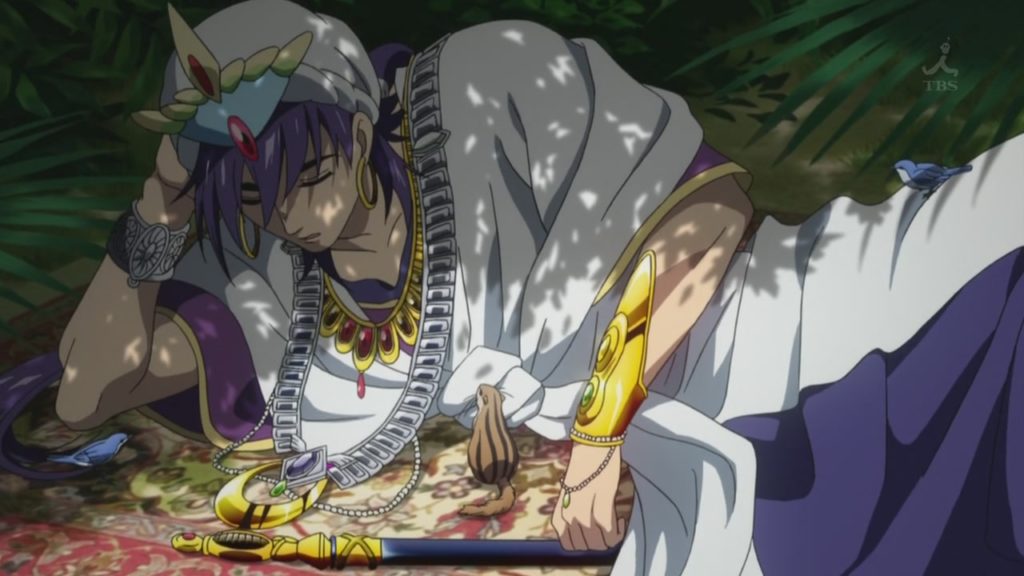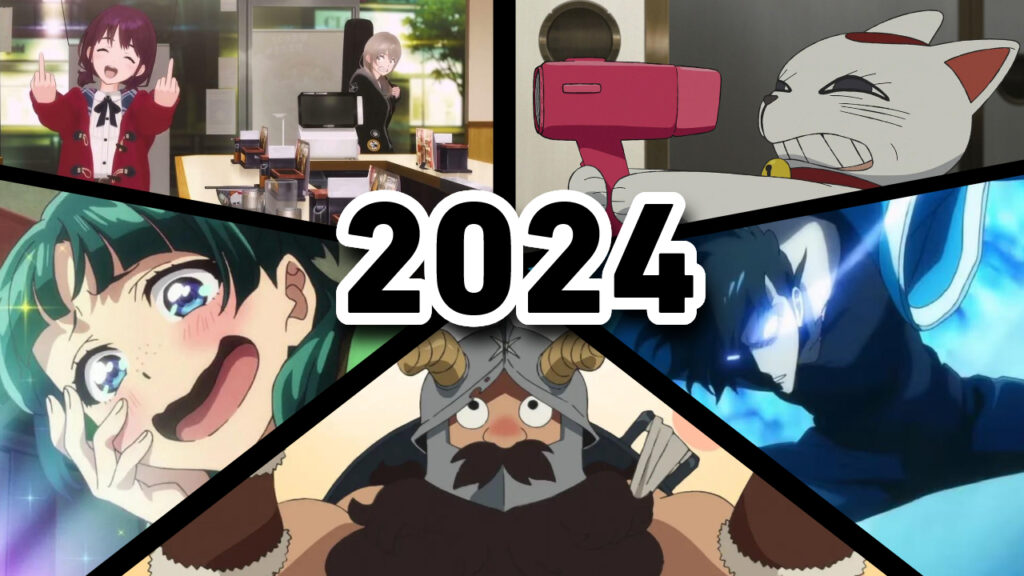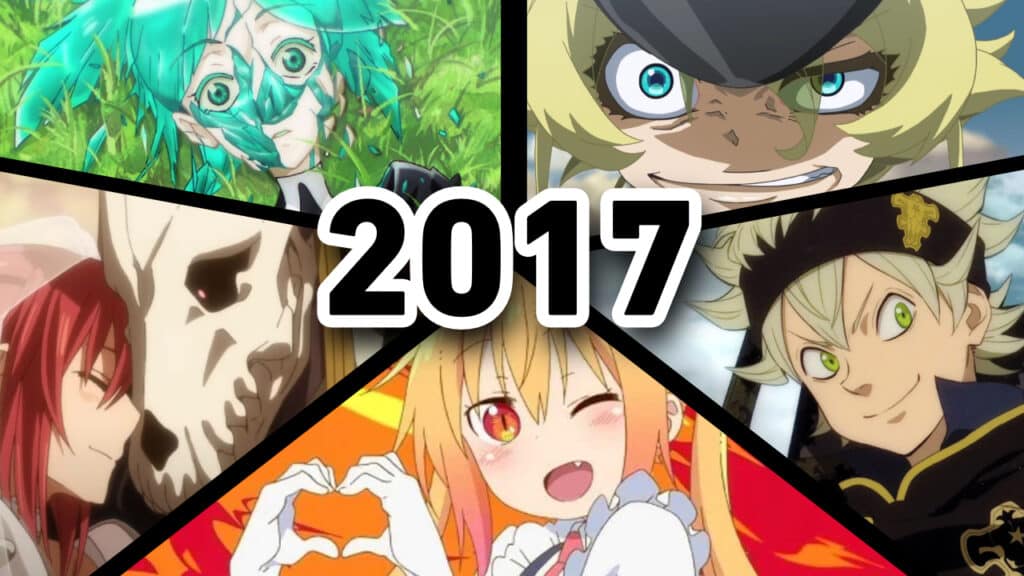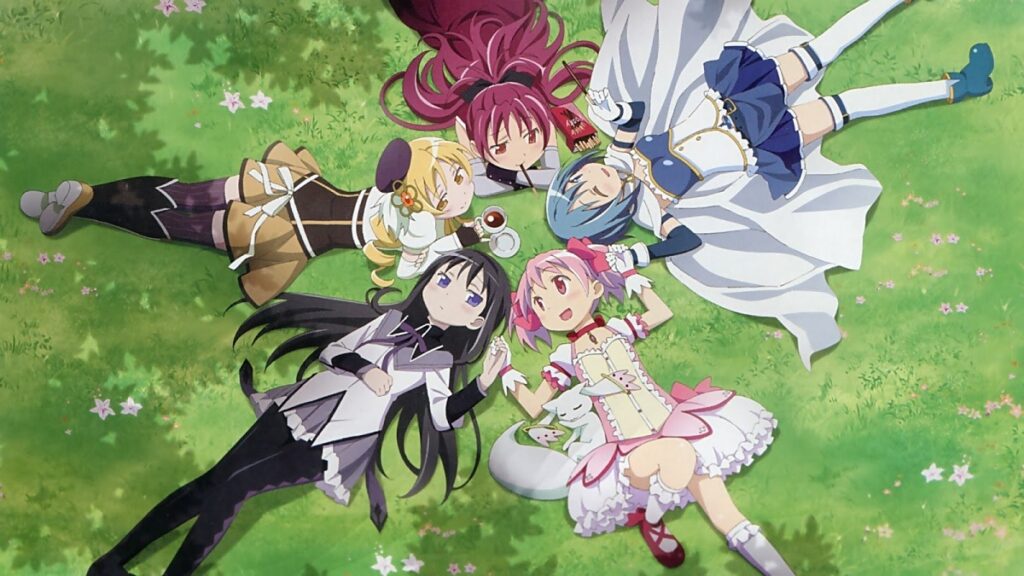Anime not only introduced many fans to Japanese history and some of the country’s unique cultural concepts, but it is a medium that can be used to educate people on other forms of media. Like period dramas and movies, anime can and has been used to adapt a number of classic novels from both Japanese authors and those abroad. While many series glean from classic novels, these ten series are strongly inspired by, if not fully adapted from, true literary classics.
Best Anime Based on Literature
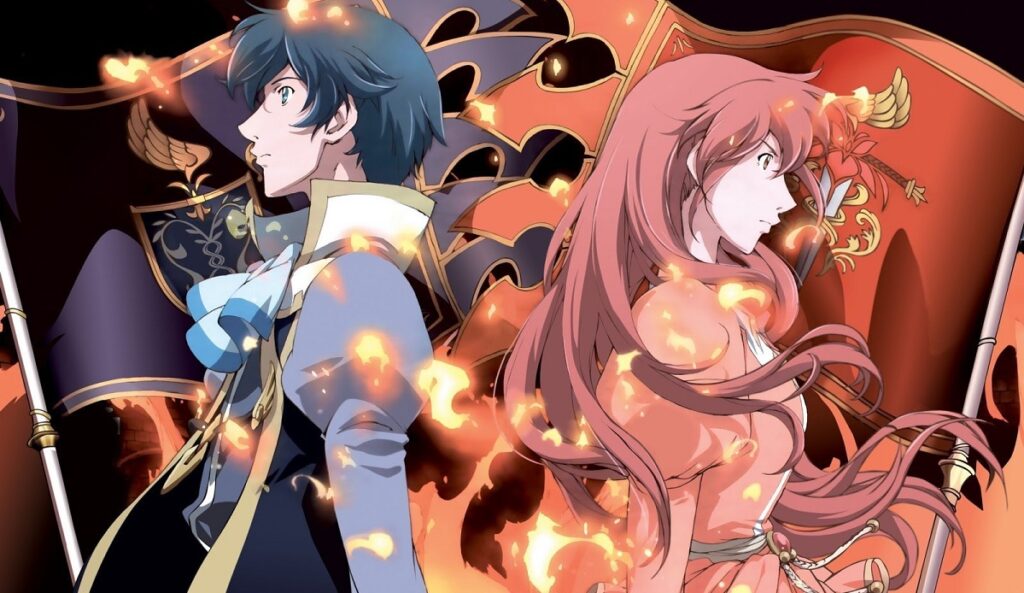
Romeo X Juliet
As if the title didn’t tell it all, Romeo X Juliet is, in fact, an adaption of William Shakespeare’s Romeo & Juliet. That is, if Romeo and Juliet lived on the floating continent of Neo Verona and the story started with the Montague family murdering all but one Capulet.
Yeah, needless to say, it takes its liberties. However, even if you are not a fan of Shakespeare’s works for whatever reason, this is an adaption that will surprise you. Not only is there some fine action within, but Romeo X Juliet actually takes the time to developing its characters while still having a number of the scenes that Shakespeare fans adore. While the couple does end up as “star-crossed lovers,” their love is not one that developed at first sight.
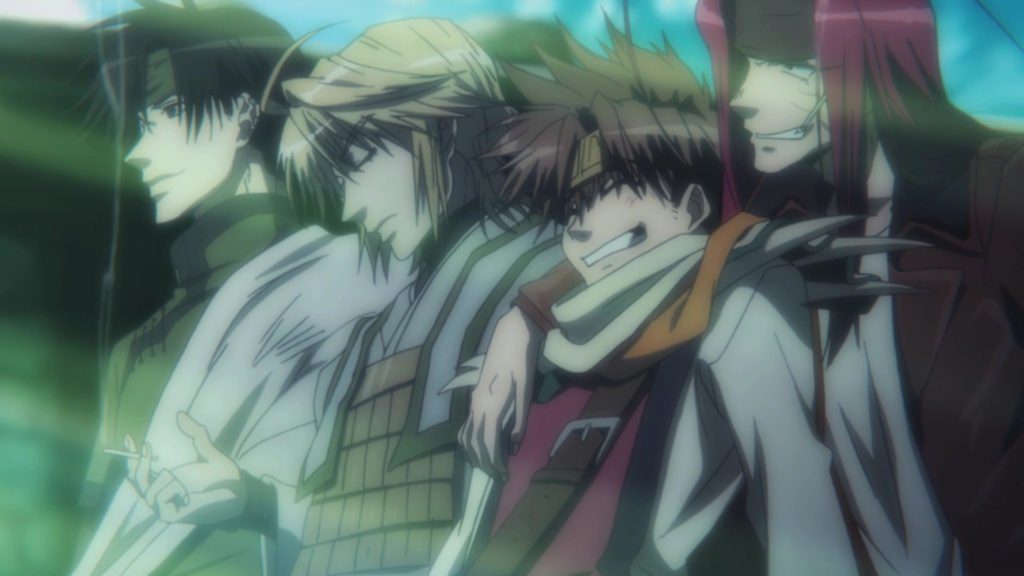
Saiyuki
Many anime fans know that Dragonball was loosely based around the classic Eastern story of Journey to the West. However, it takes some serious detours after awhile and by the end of the series looks nothing like its source material. While Saiyuki does also take some huge liberties, it at least has the majority of the characters that appear within the story and follows the same rough plot. However, as an action anime, there is a lot more fighting and darker side stories than in the source material.
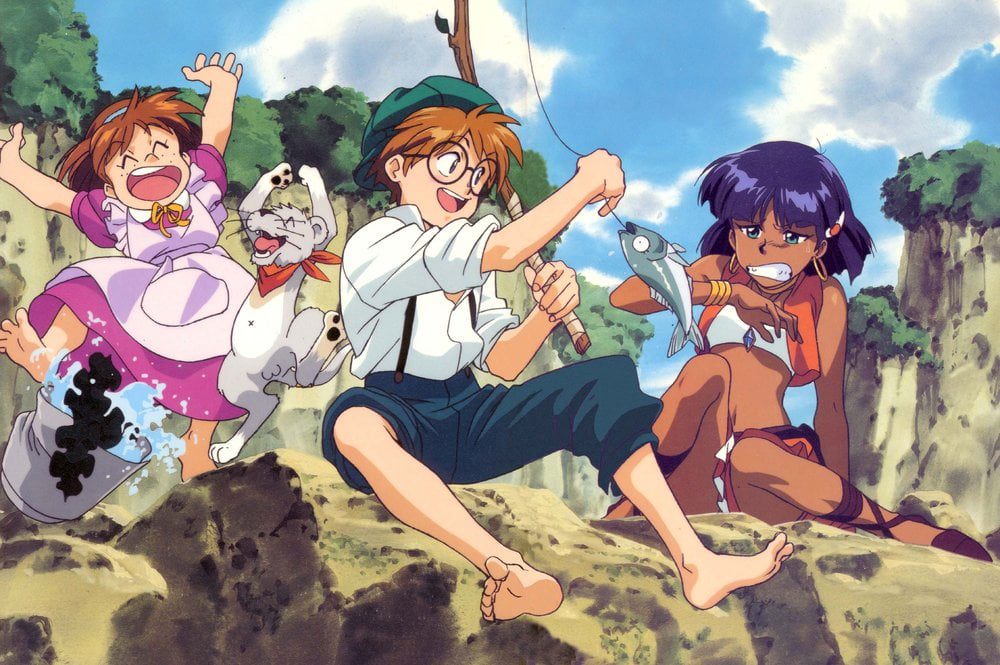
Nadia: Secret of the Blue Water
From the mind of Hayao Miyazaki and directed by Neon Genesis Evangelion’s Hideki Anno, Nadia: Secret of the Blue Water is loosely based on the classic Jules Verne novel, 20,000 Leagues Under the Sea. While created in the early 90’s and is showing its age a bit, Nadia follows the 14-year-old titular character Nadia, Jean Ratlique, and Captain Nemo as they fight the sinister foe called Gargoyle that seeks to restore the Atlantean empire to its former glory. Along the way not only do they battle foes, but the trio help Nadia learn about her true identity.
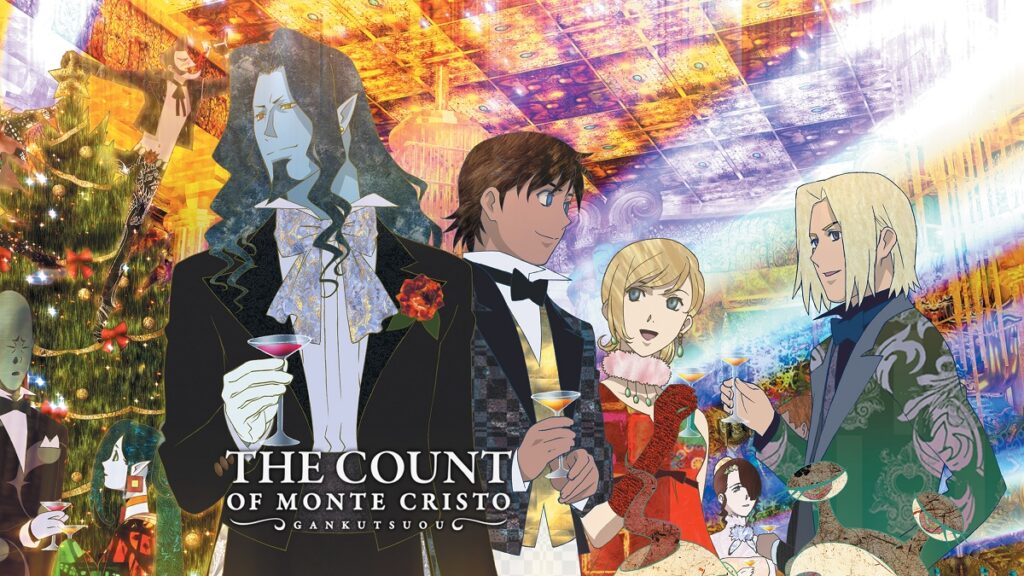
Gankutsuou: The Count of Monte Cristo
The favorite anime of literary buffs everywhere is Gankutsuou. This anime adapts the novel The Count of Monte Cristo by French author Alexandre Dumas. The story follows a man that is imprisoned on the day of his wedding, only to later escape, establish himself as nobility, and take vengeance on those that set him up.
While the anime takes a few liberties with the plot, like making the Count akin to a demon, it adapts the basic story and looks beautiful while doing it with its experimental art style. However, for fans of the book, they should note that the anime tackles the story in a different chronological order, so at first glance it might not be what they are hoping for.
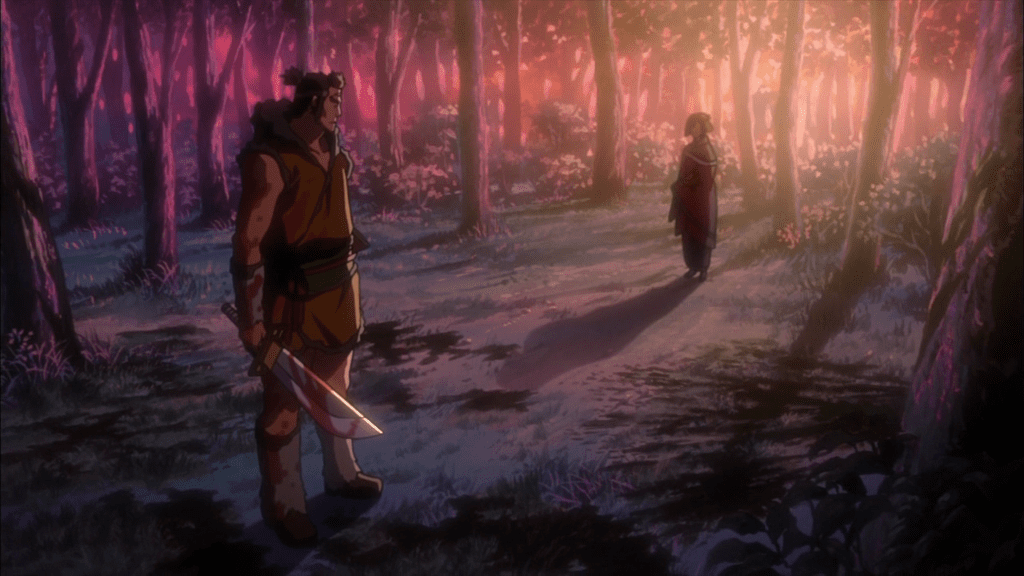
Aoi Bungaku
Unlike many of the other entries here, Aoi Bungaku was created specifically to adapt six modern classics of Japanese literature. While it does let creativity fly with the artistic choices, the stories are spot-on adaptations.
These stories include: Osamu Dazai’s No Longer Human (Ningen Shikkaku) & Run, Melos! (Hashire, Melos!), Natsume Soseki’s Kokoro, Ryunosuke Akutagawa’s Hell Screen (Jigoku Hen) & The Spider’s Thread (Kumo no Ito), and Ango Sakaguchi’s In the Forest, Under Cherries in Full Bloom (Sakura no Mori no Mankai no Shita).
They are tales of love, tragedy, friendship, kindness, and lament. Even if you don’t know much about Japanese literature, this can be a good introduction that will leave you lusting for the original source material.
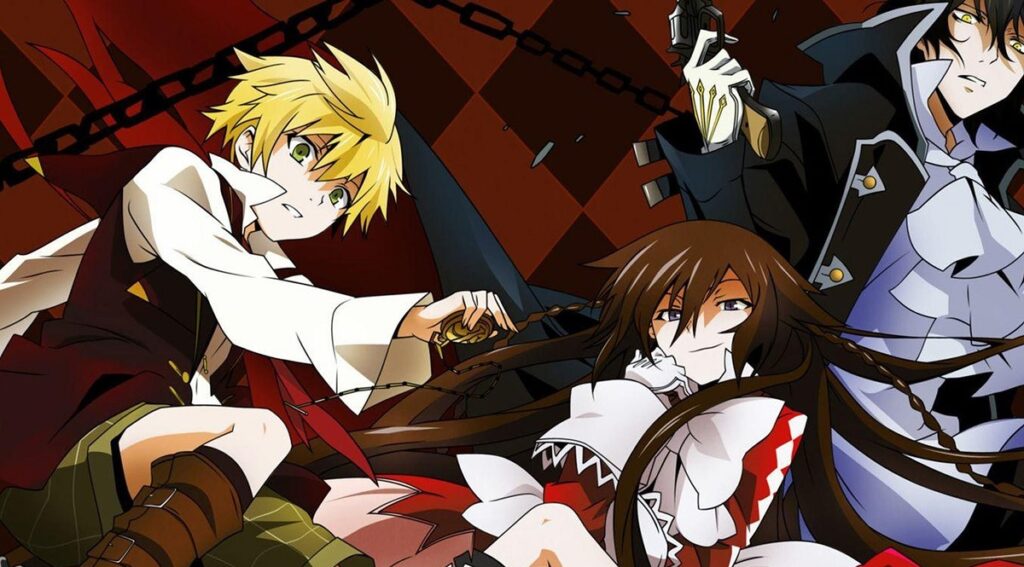
Pandora Hearts
Pandora Hearts is not so much an adaption of Alice in Wonderland as it is heavily inspired by. Pandora Hearts tells the coming-of-age story of Oz Vessalius after his birthday party is interrupted by the Baskerville Clan and he is thrown into a realm of monsters known as the Abyss. There he meets these monsters, known as Chains, including one that ends up helping him named Alice, the Bloodstained Black Rabbit. Not only is Alice helping Oz to escape, but Oz decides to help Alice discover who she really is.
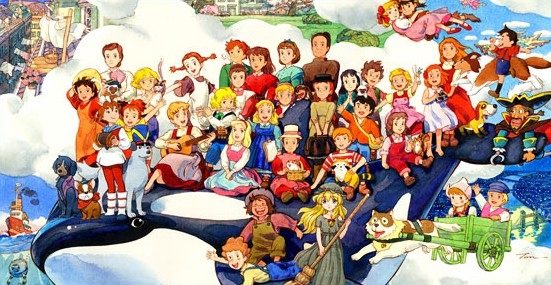
World Masterpiece Theater
Like Aoi Bungaku tells adaptations from Japanese literature, World Masterpiece Theater tells animated adaptations of different classic Western stories. This has included Anne of Green Gables, The Adventures of Tom Sawyer, The Swiss Family Robinson, and A Little Princess. As well as novels, they also did several children’s stories from around the world.
While the show has many different series under many different names, only a few installments of such have ever made it over to the west.
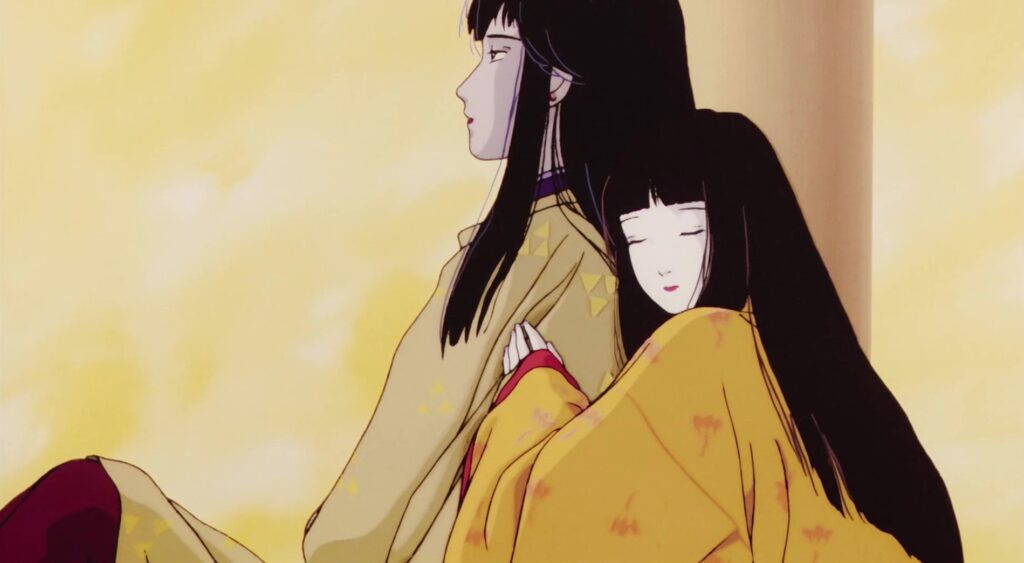
Genji Monogatari
Genji Monogatari is probably one of the most famous pieces of classic Japanese literature. It follows the story of Genji, the second son born of the emperor and one of his favorite concubines. Although he can never inherit his father’s throne, Genji instead decides to enjoy the many pleasures in life – namely lots and lots of women.
Essentially both the novel and the anime are about Genji seducing a number of beautiful women while trying to fill the lonely void inside of him.
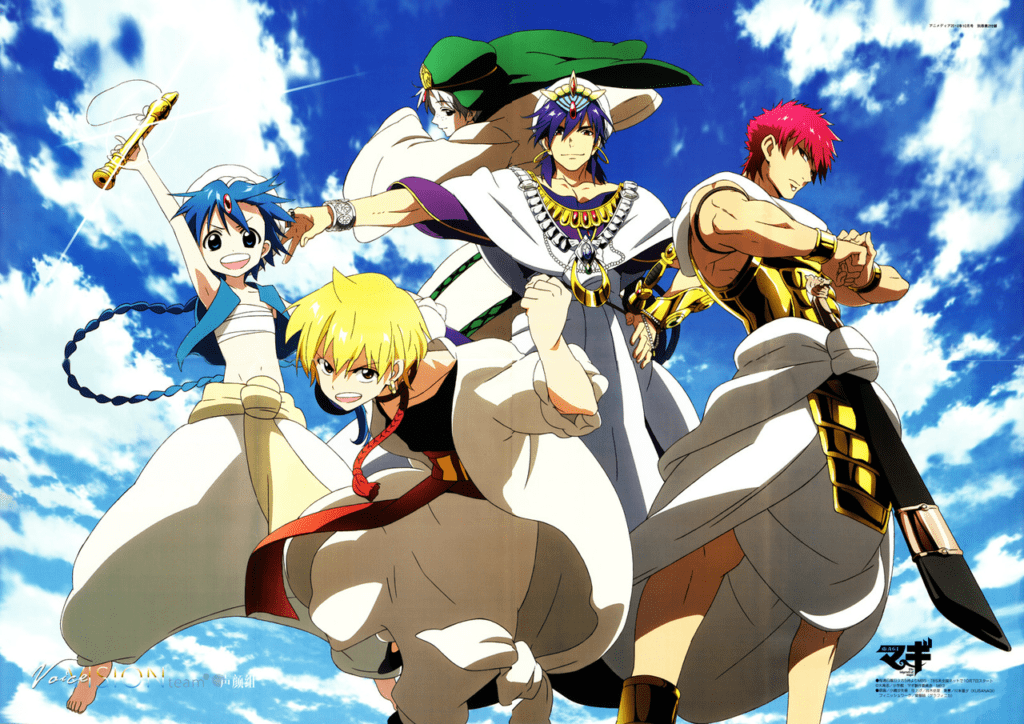
Magi
While a number of western viewers gleaned a bit of familiarity when they watched Magi due to a childhood spent watching the Disney classic Aladdin, both the Disney movie and the anime are inspired by a collection of Middle Eastern stories called One Thousand and One Arabian Nights.
The stories about Aladdin and his magic lamp, Ali Baba and his quest for wealth, Morgiana the slave, and Sinbad the master sailor were all told by Scheherazade to her husband who threatened to kill her after each night. However, by ending this story each night with a cliffhanger she prolonged getting thrown into her husband’s body pit of ex-wives. Not only do all the characters above appear in the anime, telling their stories in different forms, but Scheherazade actually makes an appearance too.
Do you know anymore anime series that were inspired by classic literature? Let us know in the comments section below.
